Transform your business with a positive impact
Your business champions product reuse, digital innovation or responsible manufacturing and you face multiple challenges.
Get ready to:
- Handle cash flow changes/fluctuations
- Purchase new equipment and assets
- Cover unexpected expenses
- Bridge short-term financial gaps
- Fund import/export activities
- Cover production, packaging, and export-related shipping costs
- Manage daily operating expenses
- Protect your business against debtors’ insolvency
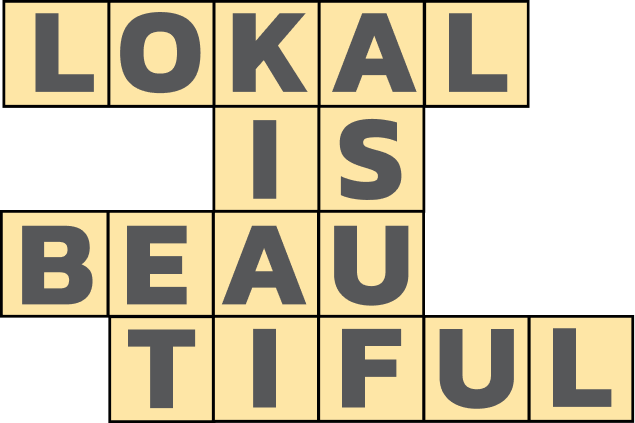
Exclusive benefits
Supporting local entrepreneurs with a unique scheme designed to foster business growth.

A rate as low as
MCB PLR + 0.5%Interest rates

Up to
10 yearsAffordable financing

Up to
100%Funding based on eligibility

Up to
12 monthsMoratorium period on loan
Recourse & non-recourse options
 For your working capital needs
For your working capital needs
 Annual revenue ≥ Rs 1.0 M
Annual revenue ≥ Rs 1.0 M
Find where your business fits
Your business needs to fit one of the following categories to benefit from our Lokal is Beautiful scheme.
Businesses preserving heritage through local production, craftsmanship, and innovation.
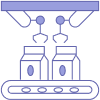
Food Processing & Other Transformation Activities
Companies that manufacture and process food such as bakery products, dairy products, honey production, beverages, canned and preserved foods.

Pharmaceutical and Therapeutic
Companies that produce pharmaceutical products or medicines such as OTC (over-the-counter) medications, skincare products, nutritional supplements.
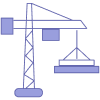
Construction and Materials
Manufacture construction materials such as cement, glass, insulation products, and concrete products.

Textile Fabrication Studio
Promote local and sustainable fashion production, such as supporting local clothing designers, textile factory, or garment manufacturing.

Hand-made and Artisanal
Local artisans, craftsmen, and entrepreneurs engaged in creating unique, handmade goods, such as pottery, woodwork, jewellery, or specialty foods (e.g pickles, Mazavaroo).

Arts and Culture
Creation and manufacturing of artistic and cultural products such as heritage instruments, performing arts, film production, exhibition and galleries, and visual arts.
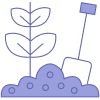
Agri-business ventures
Local agricultural production, including farms, greenhouses, aquaculture facilities, or food processing operations that prioritize local sourcing and distribution.
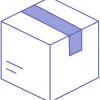
Packaging Initiatives
Produce various types of packaging materials and solutions such as food containers, custom boxes, bubble wraps, foam inserts.

Electronics Manufacturing
Produce integrated circuits (chips) and other semiconductor components.
Businesses driving technological innovation and digital transformation.

Software Development
Focus on developing custom software applications, mobile apps, or web platforms.

Infrastructure Upgrades
Focus on upgrading or expanding IT infrastructure, such as network upgrades, server deployments, or cloud migration projects.

Data Analytics
Leverage data analysis and business intelligence tools to extract insights, improve decision-making, or optimize processes.

Cybersecurity Enhancements
Strengthen information security, including the implementation of advanced security systems, vulnerability assessments, or employee training programs.
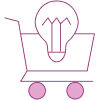
E-commerce Solutions
Focus on building or enhancing online shopping platforms, payment gateways, inventory management systems, or customer relationship management (CRM) systems.

AI and Machine Learning
Support initiatives centered around artificial intelligence (AI) and machine learning, such as developing AI-powered chatbots, recommendation systems, or predictive analytics models.
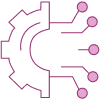
Digital Transformation
Drive digital transformation efforts within organizations, encompassing areas such as cloud computing, process automation, digitizing workflows, or adopting agile methodologies.
Businesses committed to sustainable practices and resource efficiency.
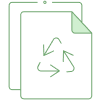
Recycling Initiatives
Focus on developing or expanding recycling facilities, processes, or technologies to recover and repurpose waste materials. Examples include plastic recycling, paper recycling.

Sustainable Packaging Solutions
Design and implement ecofriendly packaging alternatives, such as compostable packaging, reusable containers, or innovative materials that reduce waste.

Sustainable Agriculture and Food Systems
Engage in sustainable agriculture practices, organic farming, food waste reduction, or alternative food production. These companies emphasize regenerative agricultural techniques, promote local and organic food production, and contribute to reducing food loss and waste.

Resource Recovery and Upcycling
Aim to recover valuable resources from waste streams or transform waste materials into higher-value products, such as converting organic waste into compost or upcycling textile waste into new products.

Circular Supply Chain Innovators
Focus on optimizing supply chain operations to minimize waste, reduce environmental impact, and maximize resource efficiency. For e.g.; companies that promote sustainable sourcing, collaborate with suppliers on waste reduction initiatives, and implement circular logistics and reverse supply chain strategies.

Regenerative Activities and Nature Conservation
Focus on preserving and restoring natural ecosystems, biodiversity, and the planet’s resources while fostering sustainable economic growth. Examples include ecosystem restoration, Marine Conversation,Permaculture, Eco-Tourism.

Sharing economy platforms
Facilitate the sharing, renting, or leasing of goods and services among individuals or businesses, aiming to optimize resource utilization. The sharing economy operates on the principle of access over ownership, allowing multiple users to make use of underutilized resources, thereby reducing waste and promoting a circular economy. E.g.; co-working spaces, carpooling
Made in Moris
Mauritian companies with the 'Made in Moris' certification.
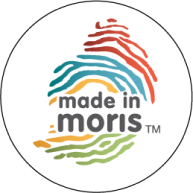
Register your interest
FAQ
The LOKAL IS BEAUTIFUL Scheme is designed to support Micro Enterprises, Small Businesses, Medium Businesses and Mid-Market enterprises by providing crucial access to finance, fostering business growth and economic development.
The LOKAL IS BEAUTIFUL scheme is an affordable financing option that allow businesses to:
- Manage cash flow fluctuations
- Purchase assets
- Cover unexpected expenses
- Bridge financing gaps
- Fund import and export activities
- Cover production, packaging, & shipping costs related to export orders
- Manage day-to-day operational expenses
- Protect your business against debtors’ insolvency
If your business is a micro enterprise, a small business, a medium businesses or a mid-market enterprise, and your business activities falls into one of the following categories , then you are eligible to apply!
- Maker Island:Focuses on supporting manufacturing and production activities, promoting innovation and efficiency in the creation of goods.
- Circular Island:Emphasizes waste management and recycling, aiming to create sustainable business practices that reduce waste and promote recycling.
- Smart Island:Targets the service and technology sectors, encouraging businesses to adopt smart technologies and innovative service models to enhance their operations and competitiveness.
- Made in Moris: Has Made in Moris Certification.
The interest rate for the LOKAL IS BEAUTIFUL Scheme is MCB PLR+0.5%.
Set up fees: 0.5% of the amount financed, with a maximum of MUR25,000.
Review Fee: 0.5% of the amount financed, with a minimum of MUR2,500 and a maximum of MUR 25,000.
For Factoring solutions (under LOKAL IS BEAUTIFUL Scheme): Enjoy a 50% discount on set-up and review fees
There is no maximum amount but the minimum amount of financing under the LOKAL IS BEAUTIFUL Scheme is MUR 100,000.
The repayment period is up to ten years and will be dependent on the purpose of financing.
This will depend on the type of financing.
Please contact your Relationship Officer who will guide you on the application process or send a WhatsApp message at (+230) 202 6060.
The application process for the LOKAL IS BEAUTIFUL Scheme typically requires the following documents:
- Application Form
- Financial Statements
- Relevant Licenses and Permits
- Any other relevant documents deemed relevant to the bank
There is a moratorium of up to 12 months for loan repayment.
We recommend that you select the most appropriate category that fits your nature of business and purpose of financing.
You can reach out to your Relationship Officer for more details. Alternatively, you can send a WhatsApp message at (+230) 202 6060.